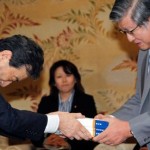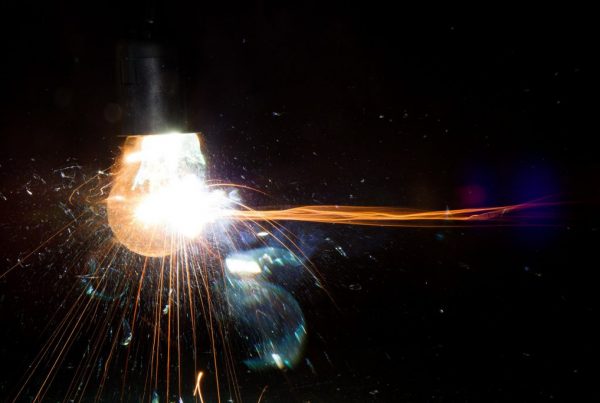Well, a little more than a plan. To have a plan we first needed strong leadership, dictating good governance, which would have demanded strong protocols, etc, etc.. The plan (apparently a mere one page memo referred to in an earlier post) is indicative of the myriad of failures at Fukushima.
The Japanese report cited by the NYT article below blames the government, the regulators and the company for the tragedy, describing ‘cozy’ relationships and a failure ‘to carry out basic safety measures’. The report then describes that this ‘was a disaster Made in Japan. Its fundamental causes are to be found in the ingrained conventions of Japanese culture: our reflexive obedience; our reluctance to question authority; our devotion to ‘sticking with the program’; our groupism; and our insularity.’
Maybe so. But Japan is hardly alone in having cozy relationships leading to disasters….. in countries like Japan, Governments are meant to make the laws; the regulators, administer them; and companies make a profit within that framework. Simple. But made more complicated when they all dine at the same club, which they must do in order to get along. And there’s the conundrum. So there’s more to come on this…..
Inquiry Declares Fukushima Crisis a Man-Made Disaster
By HIROKO TABUCHI; Published: July 5, 2012
TOKYO — The nuclear accident at Fukushima was a preventable disaster rooted in government-industry collusion and the worst conformist conventions of Japanese culture, a parliamentary inquiry concluded Thursday.
“It was a profoundly man-made disaster — that could and should have been foreseen and prevented,” said Kiyoshi Kurokawa, the commission’s chairman, in the report’s introduction. “And its effects could have been mitigated by a more effective human response.”
While assigning widespread blame, the report avoids calling for the censure of specific executives or officials. Some citizens’ groups have demanded that executives of the plant’s operator, the Tokyo Electric Power Company, or Tepco, be investigated on charges of criminal negligence, a move that Dr. Kurokawa said Thursday was out of his panel’s purview. But criminal prosecution “is a matter for others to pursue,” he said at a news conference after the report’s release.
The very existence of an independent investigating commission — which avoids reliance on self-examination by bureaucracies that might be clouded by self-defense — is a break with precedent in Japan, but follows the pattern followed in the United States after major failures involving combinations of private companies, government oversight and technology issues. Those cases, which were cited by the panel, include the Three Mile Island nuclear accident in 1979, the Columbia and Challenger space shuttle disasters in 1986 and 2003 and the terrorist attacks on Sept. 11, 2001.
The 641-page report criticized Tepco as being too quick to dismiss earthquake damage as a cause of the fuel meltdowns at three of the plant’s six reactors, which overheated when the site lost power. Tepco has contended that the plant withstood the earthquake that rocked eastern Japan, instead placing blame for the disaster on what some experts have called a “once in a millennium” tsunami that followed. Such a rare calamity was beyond the scope of contingency planning, Tepco executives have suggested, and was unlikely to pose a threat to Japan’s other nuclear reactors in the foreseeable future.
The parliamentary report, based on more than 900 hours of hearings and interviews with 1,167 people, suggests that Reactor No. 1, in particular, might have suffered earthquake damage, including the possibility that pipes burst from the shaking, leading to a loss of coolant even before the tsunami hit the plant about 30 minutes after the initial earthquake. It emphasized that a full assessment would require better access to the inner workings of the reactors, which may not be possible for years.
“However,” the report said, “it is impossible to limit the direct cause of the accident to the tsunami without substantive evidence. The commission believes that this is an attempt to avoid responsibility by putting all the blame on the unexpected (the tsunami),” the report continued, adding, “and not on the more foreseeable quake.”
The report, submitted to Parliament on Thursday, also contradicted accounts put forward by previous investigations that described the prime minister at the time, Naoto Kan, as a decisive leader who ordered Tepco not to abandon the plant as it spiraled out of control. There is no evidence that the operator planned to withdraw all its employees from the plant, the report said, and meddling from Mr. Kan, including his visit to the plant a day after the accident, confused the initial response.
Instead, the report by the commission — which heard testimony from Mr. Kan and a former Tepco president, Masataka Shimizu — described a breakdown in communications between the prime minister’s office and Tepco, blaming both sides.
“The prime minister made his way to the site to direct the workers who were dealing with the damaged core,” the report said, an action that “diverted the attention and time of the on-site operational staff and confused the line of command.”
The report faulted Mr. Shimizu for an “inability to clearly report” to the prime minister’s office “the intentions of the operators,” which deepened the government’s misunderstanding and mistrust of Tepco’s response.
The commission also accused the government, Tepco and nuclear regulators of failing to carry out basic safety measures despite being aware of the risks posed by earthquakes, tsunamis and other events that might cut off power systems. Even though the government-appointed Nuclear Safety Commission revised earthquake resistance standards in 2006 and ordered nuclear operators around the country to inspect their reactors, for example, Tepco did not carry out any checks, and regulators did not follow up, the report said.
The report placed blame for the tepid response on collusion between the company, the government and regulators, saying they had all “betrayed the nation’s right to safety from nuclear accidents.” Tepco “manipulated its cozy relationship with regulators to take the teeth out of regulations,” the report said.
Dr. Kurokawa reserved his most damning language for his criticism of a culture in Japan that suppresses dissent and outside opinion, which he said might have prompted changes to the country’s lax nuclear controls.
“What must be admitted, very painfully, is that this was a disaster ‘Made in Japan,’ ” Dr. Kurokawa said in his introduction to the English version of the report. “Its fundamental causes are to be found in the ingrained conventions of Japanese culture: our reflexive obedience; our reluctance to question authority; our devotion to ‘sticking with the program’; our groupism; and our insularity.” The Japanese version contained a similar criticism.
Shuya Nomura, a commission member and a professor at the Chuo Law School, said the report had tried to “shed light on Japan’s wider structural problems, on the pus that pervades Japanese society.”
Matthew L. Wald contributed reporting from Washington.





